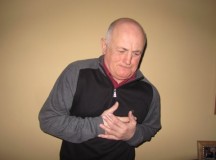Last Saturday night you may have seen something in the sky that only happens every 18 years. It was a super moon.
A super moon looks a lot bigger and about 30 times brighter than the moon normally is. That’s because it’s closer to the Earth than normal. Its official name is a super “perigee moon,” but people just call it “super moon.”
The moon moves around the Earth in an oval shape, not a perfect circle, so there are times when the moon is closer to the Earth or farther away from it. On Saturday, the moon was really close to the Earth.
People all over the world could see the super moon on Saturday, including Australia, Russia, Canada and the United States. According to NASA, the last time a super moon like this was visible was 1993.








